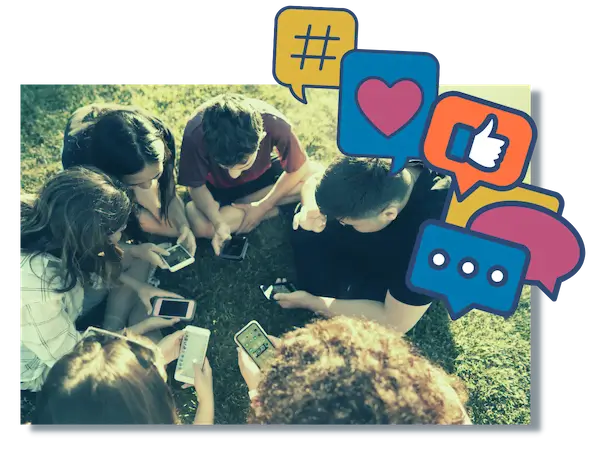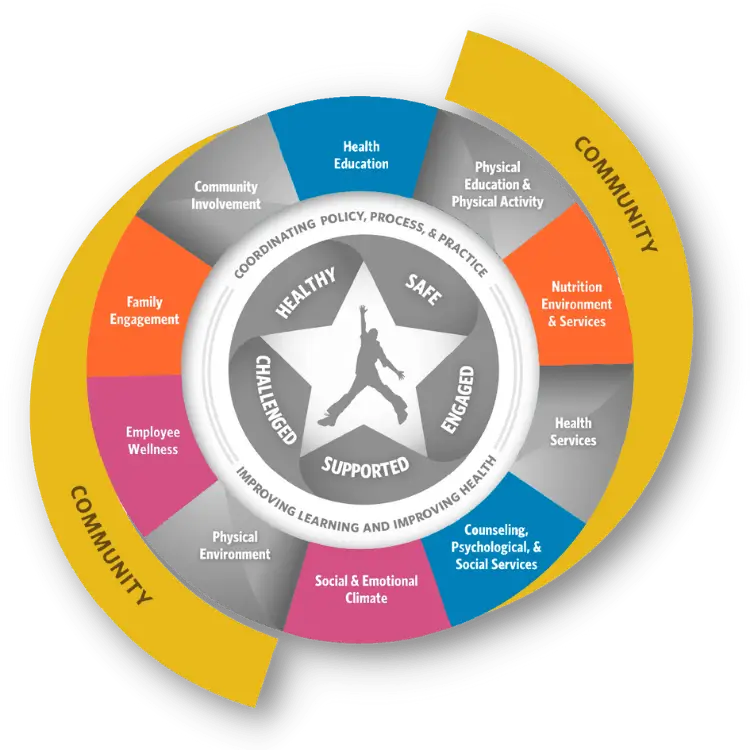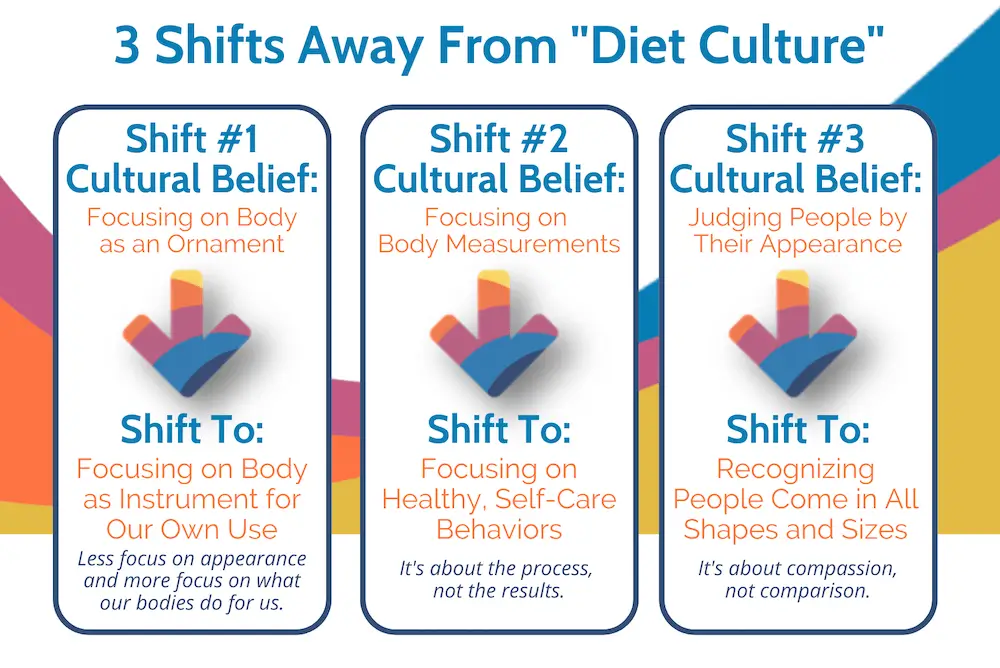BE REAL™ at Your School
BE REAL gives Body Confident Schools Workshops
“Schools and parents are crucial parts of the body confidence equation for students. Body image & eating problems are best prevented when teachers are trained and when school policies and school environment are modified” (Burnette et al., 2017).

Most adolescents today do not like their bodies.
77% of adolescents experience body image distress (Milton et al., 2021). 1 in 8 girls and 1 in 16 boys will develop an eating disorder at some point in their lives (Smink et al., 2012).
50% of adolescents exhibit disordered eating behavior: food restriction (dieting), binge-eating, purging, laxative abuse, taking diet pills and muscle building supplements, and over-exercising (Yoon et al., 2020).
Teens are on their screens 8.5 hours a day, and this is a pre-COVID statistic (Rideout, 2019). The visual social media adolescents consume, such as Instagram and TikTok, causes body dissatisfaction (Jiotsa et al., 2021; Engeln et al., 2020; Fardouly et al., 2015). Young people are constantly bombarded with images on their cell phones, TVs, and computers. Studies show adolescents see thousands of images of “perfect looking” people each day, coming at them constant stream.
Mindshare Continuum:
Thinking About Food & Body

Because our culture has become so preoccupied with appearance, each us personally thinks about it quite a bit. This figure on the right is the Mindshare Continuum of pre-occupation with food, body & eating. We all live somewhere on this spectrum.
A problem for adolescents is when the pre-occupation takes over space in their brain they don’t have space and time for things that matter more. They are taken off track from their developmental task of forming their identity. Normally we figure out who we are from many aspects of who we are: character traits, abilities, interests & talents.
For today’s adolescents, they are figuring out who they are in a culture that focuses almost exclusively on the appearance piece.
Body image is not a regular topic for conversation in most homes today. For students, the body image unit in their health class might be the first & only discussion they ever get on body image.
5 Steps to a Body Confident School
is aligned with the CDC’s Whole School, Whole Community, Whole Child framework

Step 1
Educate Educators
Because we have all been living in our appearance-focused culture, educators should ask themselves where their own attitudes & beliefs could use shifting away from our current culture’s values. Students often are given conflicting information on food, bodies, and eating based on their teachers’ belief systems. These are the shifts we recommend each teacher (and parent) consider:
Step 2
Identify Disordered Eating Symptoms
Educators should learn to identify disordered eating symptoms in their students by looking for behavioral, physical, and emotional signs.
Eating disorders: 12% of women and 6% men will be diagnosed by a mental health professional with an eating disorder at some point in their lives.
Eating Disorder treatment is almost always an intervention, so when the adults in a student’s life don’t know what an eating disorder looks like, the young person suffering won’t get the necessary help.
Step 3
Appoint a Point Person
Appointing a point person in your school could assure teachers and students have the resources they need to communicate about body image well-being. This point person could be a social worker or counselor with eating disorder training.
Step 4
Adopt Anti-bullying Practices
Body Size is the #1 reason kids are bullied in school. Schools should:
- Have a protocol in place on teasing or harassment based on size or appearance
- Make sure the protocol is enforced, as if someone being bullied about their race, ethnicity, gender, sexuality, or ability
- Review school posters, books, and material to make sure they include all shapes, sizes just as they would to include racial, ethnic, gender, and ability diversity
- Ensure students of all sizes are encouraged to participate in activities.
Step 5
Adopt a Body Confidence Curriculum
Schools can make sure they are using tested, evidence-based body image curriculum in health or advisory classes. We proudly recommend Be Real’s BodyKind high school, body image curriculum. Learn more about Be Real’s BodyKind curriculum here.
Body Confident Schools has been vetted by STRIPED the Eating Disorder Prevention Incubator at the Harvard T. H. Chan School of Public Health. They surveyed 200 of our educator participants and found that Body Confident Schools moved the needle on they know about body image, eating disorders, weight stigma. It gave them the incentive to teach a body image curriculum at their schools.
What people are saying about the BE REAL Workshops:
“As a father of two teenage daughters and as a principal of a high school, I found the BodyKind presentation to be positively impactful. This presentation helped me to reflect upon prioritizing wholeness over the negative aspects of the hyper health crazed society that bombards us and our teens daily. This presentation gives adults and educators a framework with which to assess their own relationship to being body kind and the impact upon those whose lives we play a part in. I highly recommend that educators and adults alike take part in this presentation and begin the conversation around supporting ourselves and our teens on this journey of health and wholeness. “
“In 11 years of teaching, this was the best professional development I’ve been to!”
“Thank you for sharing your knowledge with our educators! The reviews from our teachers on your workshops are fantastic!”
“Can we please have more professional development just like this Workshop?”
“This presentation is great! We should have this Workshop for a school-wide break out session.”
“The Workshop is very insightful! I have already used information with kids at work and at social gatherings when this topic comes up.”
“This should be an all school workshop, not just for Health Teachers, Social Workers and Administrators.”
“This was a LOT of information! It was all extremely valuable and important!”

Zoom Group Training
Great for school districts for professional development credit
Denise Hamburger can give a 3-hour training
$1500 speaking fee
Each participant takes an 20-question test. When a participant gets a 90% on the test, BE REAL gives that participant links to these materials:
- Body Confident Schools: 60-minute presentation
- Body Confident Schools: 3-hour Professional Development Presentation
- Body Confident Schools Agenda
- Branded letter to give to schools for presentations
- Branded invoice for Body Confident Schools presentation
BE REAL Ambassador certificate for each participant who scores a 90% on the test

In-Person Group Training
Great for schools to train their entire faculty
Denise Hamburger can give group a 3-hour training
$1500 speaking fee + travel expenses
Each participant takes an 20-question test. When a participant gets a 90% on the test, BE REAL gives that participant links to these materials:
- Body Confident Schools: 60-minute presentation
- Body Confident Schools: 3-hour Professional Development Presentation
- Body Confident Schools Agenda
- Branded letter to give to schools for presentations
- Branded invoice for Body Confident Schools presentation
BE REAL Ambassador certificate for each person with a 90% on the test.
Become a BE REAL Ambassador
BE REAL Ambassadors are trained to give professional development workshops and presentations to educators using BE REAL’s resources. If you would like to become a BE REAL Ambassador we would love to have you join us!
In-Person Group Training Request Form
Please fill out the form below to request In-Person Group Training for your team. We will be in touch with you in the next few days to start the process.
Zoom Group Training Request Form
Please fill out the form below to request Virtual Group Training for your team. We will be in touch with you in the next few days to start the process.


